#jerry scheff
Explore tagged Tumblr posts
Text


"ELVIS ON TOUR" (1972)
GIFS — OPENING AND ENDING SCENES














#elvis presley#elvis history#elvis films#70s movies#elvis on tour#1972#jd sumner and the stamps quartet#the sweet inspirations#kathy westmoreland#TCB band#james burton#john wilkinson#jerry scheff#ronnie tutt#glen d hardin#memphia mafia#elvis#70s elvis#elvis the king
101 notes
·
View notes
Text

Elvis Costello Kojak Variety 1995 Warner Brothers ——————————————————————— Tracks: 01. Strange 02. Hidden Charms 03. Remove This Doubt 04. I Threw It All Away 05. Leave My Kitten Alone 06. Everybody’s Crying Mercy 07. I’ve Been Wrong Before 08. Bama Lama Bama Loo 09. Must You Throw Dirt in My Face 10. Pouring Water on a Drowning Man 11. The Very Thought of You 12. Payday 13. Please Stay 14. Running Out of Fools 15. Days ———————————————————————
James Burton
Elvis Costello
Larry Knechtel
Marc Ribot
Jerry Scheff
Pete Thomas
* Long Live Rock Archive
#ElvisCostello#James Burton#Elvis Costello#Larry Knechtel#Marc Ribot#Jerry Scheff#Pete Thomas#Kojak Variety#LP#Pop#1995
2 notes
·
View notes
Video
youtube
The Doors - The Changeling
#youtube#the doors#the changeling#l.a. woman#jim morrison#ray manzarek#robby krieger#john densmore#jerry scheff#marc benno#blues rock#r&b#psychedelic rock#acid rock#music#music is love#music is life#music is religion#raining music#70s#70s music
50 notes
·
View notes
Text
youtube
Szymczyck did not just helm the musicians in the genre of rock as we will notice. Listen, he also produced Howard Roberts' Equinox Express Elevator, which is a jazz record by someone who is a great sideman. I mean, do not take this as a slight, he was one of the more prolific session musicians and he even developed several guitars for the others to play. Still, I would claim the solo album he did with Szymczyck was at times closer to jazz fusion than anything else, since he brought what he did on other people's records to do on his own. Nonetheless, his discography is something I need to check more often and the connection with Szymczyck gave me a great incentive to look into Mr. Roberts. Who know what gems await me there?
#Youtube#howard roberts#equinox express elevator#unfolding in#dave grusin#mike wofford#jerry scheff#mayuto correa#diana lee#ed michel#bill szymczyk#70's music#jazz
0 notes
Text
THE DOORS - Riders on the Storm
* Alternate Version
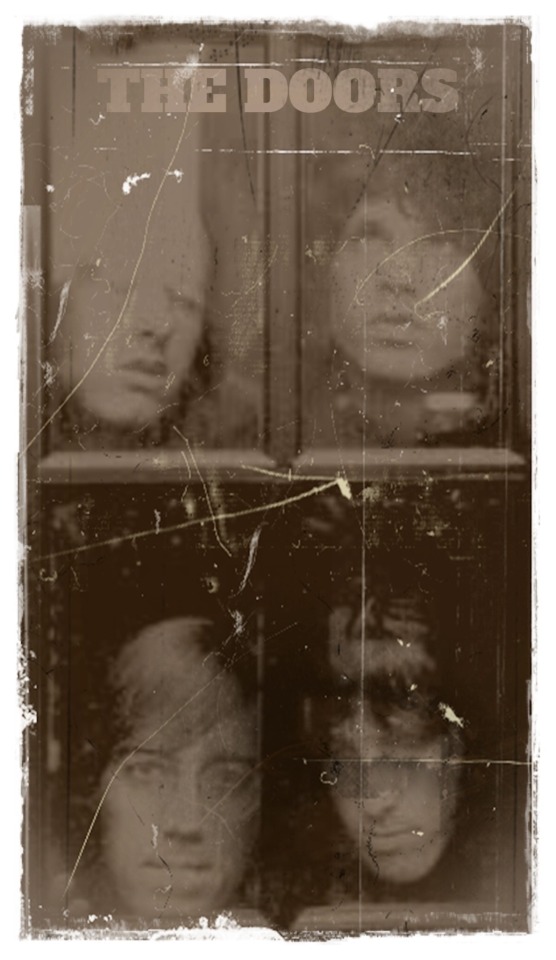
Personnel:
Jim Morrison - vocals Ray Manzarek - keyboards Robby Krieger - guitar John Densmore - drums Jerry Scheff - bass
55 notes
·
View notes
Text
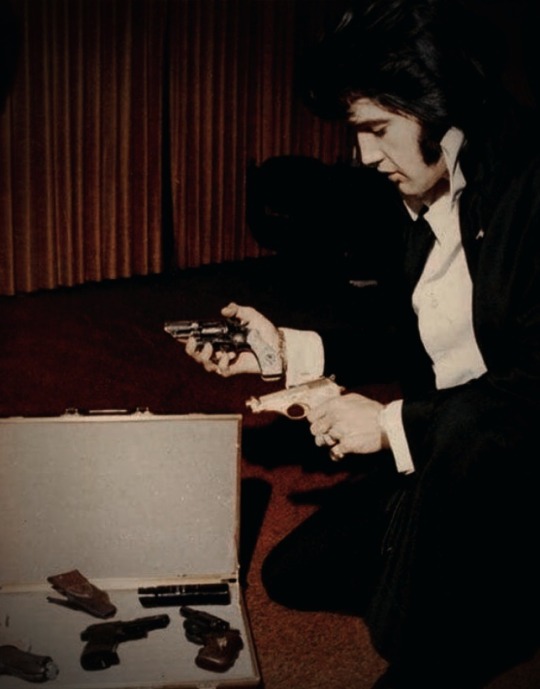
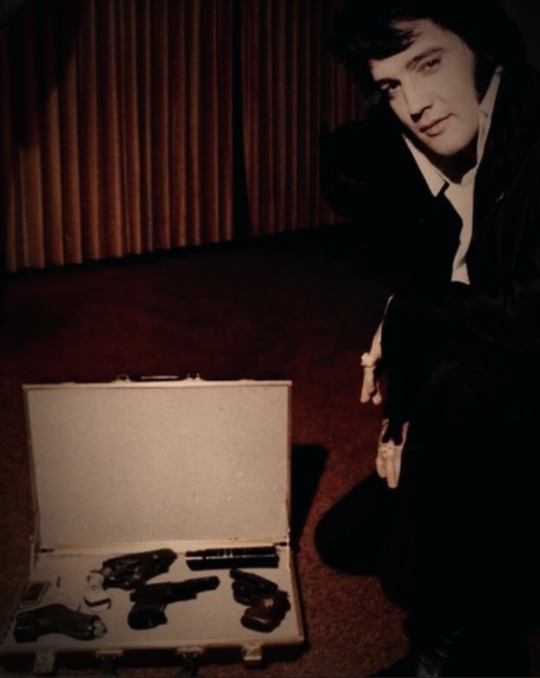
“At one point Elvis had to go to the bathroom which was next to the room where we were sitting. Elvis excused himself and we heard the bathroom door open. All of a sudden we hear ‘clunk’, ‘clunk’, ‘clunk’, and Priscilla started laughing and said ‘it sounds like a knight taking off his armor doesn’t it?’. Evidently, when he went to the bathroom, he’d need to take off a couple of guns just so he could pee”
- Interview with Jerry Scheff
#just elvis things#a gun totin’ man#I think he is the only singer who has ever had this problem lmaoo#this man would really walk around with 6-7 guns on him 😭#elvis anecdotes#elvis presley#elvisaaronpresley#elvis#elvis history#elvis fans#elvis photos#elvis fandom#elvis book excerpts
284 notes
·
View notes
Text
Events in The History And Of The Life Of Elvis Presley Today On The 4th Of May In 1975.
Elvis Presley candid photos taken here arriving at Lake Charles LA in the early hours of the morning here accompanied by Joe Esposito and Jerry Schilling and Red West on the 4th of May In 1975.
ELVIS PRESLEY PLAYS A SHOW A CONCERT AT LAKE CHARLES IN LOUISIANA.
Rare Ep fans and Audience Members Live Candid Photo’s Taken Here Of Elvis Presley At This Show And Concert. Set And Song 🎵 List Recorded By Elvis Presley And The TCB Band At This Show And Concert.
Lake Charles, LA
May 4, 1975
Evening Show
Opening See See Rider/I Got A Woman /Amen
01. Elvis talks
02. Jambalaya
03. Love Me
04. If You Love Me Let Me Know
05. Love Me Tender (with false start)
06. All Shook Up
07. Teddy Bear / Don’t Be Cruel
08. The Wonder Of You
09. Polk Salad Annie
10. Band Introductions
11. What I’d Say featuring James Burton’s guitar solo
12. Ronnie Tutt’s drums solo
13. Jerry Scheff’s Blues solo
14. Glen Hardin’s piano solo
15. Band Introductions
16. School Days
17. Johnny B. Goode
18. Streamroller Blues
19. T-R-O-U-B-L-E
20. I’ll Remember You
21. Why Me Lord
22. Let Me Be There
23. An American Trilogy
24. Hound Dog
25. Elvis talks
26. Funny How Time Slips Away
27. Little Darlin’
28. Can’t Help Falling In Love / Closing Vamp
29. Closing Vamp
30. Announcement
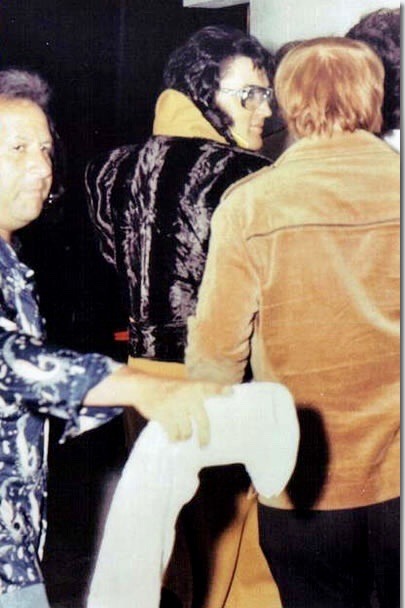

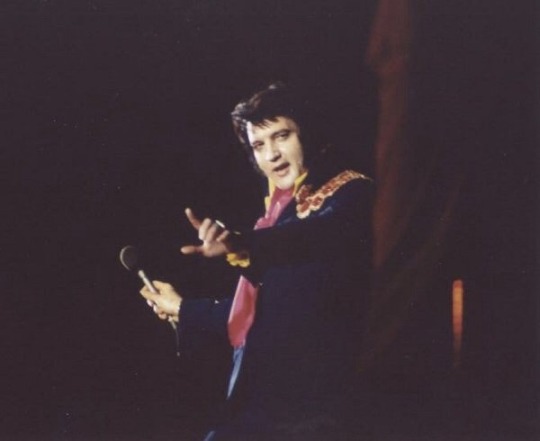

13 notes
·
View notes
Text
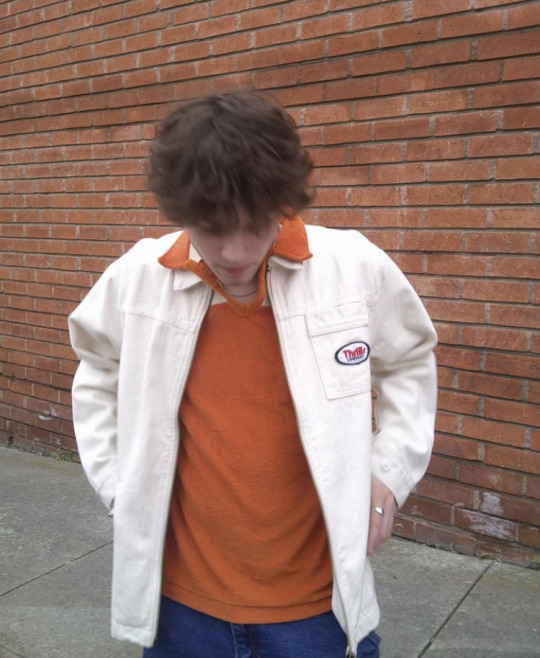
Matt & Me🎀
1 2 3 4 5 6 7 8 9 10 11 12 13 14 15 16 17 18 19 20 21 22 23 24
a story heavily based on Priscilla Presley’s Book “Elvis & Me” based in the 1950’s - 1970’s.
fem! reader x singer! matt
disclaimer!! - in no way am i saying matt would ever support or do these kind of things, for the sake of the book certain unethical things do happen at times.
warnings - mentions of guns,, drug use,, threats,, mentions of affairs
y/nn = your nickname for any confusion🩷
Chapter 21
Putting together the best musicians, sound and lighting technicians, costumers, and choreographers, he was taking no chances this time. He scoured the music scene for the top sidemen in the business. Auditions were held and he handpicked each player—names such as James Burton, John Wilkinson, Ronny Tutt, Glen D. Hardin, Jerry Scheff. He loved the sound of the Sweet Inspirations, backup group for Aretha Franklin, and he hired them on the spot as a warmup act and to sing backup vocals. He also hired his favorite gospel group, the Imperial Quartet.
Before leaving Los Angeles, Matt rehearsed at RCA Sound Studios for ten days and then polished the act for a full week prior to the opening. It was the event of the summer in Vegas. Colonel Parker brought the preopening publicity to fever pitch. Billboards were up all over town. On the third floor of the International, administrative offices bustled with activity. No other entertainer coming into Vegas had ever stimulated this kind of excitement. The hotel lobby was dominated by Matt paraphernalia—pictures, posters, T-shirts, stuffed animals, balloons, records, souvenir programs. You’d think Barnum and Bailey were coming to town.
Back home there was also excitement as we girls discussed what we’d wear to the opening. “I want you to look extra special, Baby,” Matt said. “This is a big night for all of us.” I hit every boutique in West L.A. before finding just the right outfit.
Though it had been nine years since Matt had given a live performance, you never would have known it from his opening. The audience cheered the moment he stepped onstage and never stopped the entire two hours as Matt sang, “All Shook Up,” “Blue Suede Shoes,” “In the Ghetto,” “Tiger Man,” and “Can’t Help Falling in Love.” He mixed the old with the new, the fast and hot with the lyrical and romantic. It was the first time I’d ever seen Matt perform live. Wanting to surprise me, he had kept me from rehearsals. I was astounded. At the end he left them still cheering and begging for more.
Cary Grant was among the stars who came backstage to congratulate him after the show. But the most touching moment was when Colonel William arrived with tears in his eyes, wanting to know where his boy was. Matt came out of the dressing room and the two men embraced. I believe everyone felt their emotion in that moment of triumph.
I don’t think we slept that night. Nate Doe brought in all the newspapers and we read the rave reviews declaring, “Matt was great” and “He never looked or sang better.” He shared credit for his new success with all of us.
“Well, we did it. It’s going to be a long thirty days, but it’s going to be worth it if we get the reception we got last night. I may have been a real tyrant, but it was well worth it.”
“Yeah, you’re right,” we all agreed, laughing. “You were a tyrant.”
The International Hotel was delirious over Matt’s performance and the box-office receipts. The following day they signed a fiveyear contract with the Colonel for Matt to appear twice a year, usually around the same time, January and August, at the then unheardof salary of one million dollars a year.
Matt literally took over Las Vegas for the entire month he was there, playing to a packed house every show as thousands more were turned away. No matter where we looked, all we could see was the name Matt—on television, newspapers, banners, and billboards. The King had returned.
Initially, Matt’s triumph in Las Vegas brought a new vitality to our marriage. He seemed a different person. Once again, he felt confident about himself as a performer and he continued to watch his weight and work out every day at karate.
It was also the first time that I felt we were functioning as a team. I made several trips to New York, trying to find unique accessories for him to wear onstage. I bought scarves, jewelry, and a black leather belt with chain links all around it that Bill Belew would later copy for the famous Matt jumpsuit belts.
I loved seeing him healthy and happy again, and I especially enjoyed our early days in Vegas. The International provided an elegant three-bedroom suite that we turned into our home away from home. During his show I always sat at the same table down front, never tiring of watching him perform. He was spontaneous and one never knew what to expect from him.
On occasion, after his midnight show, we’d catch lounge acts of other performers playing Vegas or we’d gamble until dawn. Other times we’d relax backstage, visiting with entertainers captivated by his performance. This was the first time I’d been with Matt at a high point in his career.
With the renewed fame came renewed dangers. Offstage he could be guarded by Sonny and Red. Onstage he was a walking target. One night that summer Nate and Sonny were tipped off that a woman in the audience was carrying a gun and had threatened to shoot Matt. A true professional, Matt insisted on going on. Additional precautions were taken and everyone was on the alert. Matt was instructed to stay downstage, making himself a smaller target, and Sonny and Jerry were poised to jump in front of him at the slightest sign of suspicious movement in the audience. Red was positioned in the audience with the FBI agents.
The show seemed to take an eternity. I glanced at Patsy apprehensively and she in turn grasped my hand as we comforted each other, longing for the night to end without incident. James remained backstage, never letting Matt out of his sight and praying, “Dear God, don’t let anything happen to my son.”
Because of this and other threats, extra security was arranged wherever Matt appeared. Entrances through backstages, kitchens, back elevators, and side exits became routine.
Matt had his own theory about assassinations, based on the murders of the Reverend Martin Luther King, Jr., and Robert F. Kennedy. He felt that the assassins gloated over their “accomplishments,” and told his bodyguards that if any attempt were made on his life, they should get the killer—even before the police. He didn’t want anyone bragging to the media that they’d killed Matt Sturniolo.
Sonny and Red lived in so much tension these days that they were constantly frenzied. Suspicious in crowds of overzealous fans, they were quick to respond to any sign of danger. Compared to Sonny’s diplomacy, Red’s reputation was to act first and ask questions later. Eventually, numerous assault-and-battery charges started piling up against Matt. When James warned him about Sonny and Red’s aggressiveness, Matt said, “Goddamn, Red. I hired you to keep the sons of bitches away from me, not get me in any legal binds. Somehow you’re going to have to control that redheaded temper of yours.”
Although Matt would joke about the death threats—and there would be several more throughout the Vegas commitments—the fear and constant need for security heightened the pressure of nightly performing.
In the beginning when Matt began doing regular Vegas engagements, we girls visited frequently. We’d fly in over the weekend, sometimes bringing our children, spend three or four days, and then return home.
On the days we were apart I’d take hundreds of Polaroids and home movies of Charlotte. She was growing so rapidly I didn’t want him to miss out on her development. Daily he’d receive his “care packages,” as I’d refer to them, including tape recordings of me teaching Charlotte new words and Charlotte mimicking me. Each week, upon my arrival, I’d paste photos on the mirrors in his bedroom to remind him that he had a wife and child.
During his first couple of engagements he still seemed humbled by lingering doubts of whether the public was fully accepting him. At this point he had no interest in outside affairs or flirtations, his concentration on daily rehearsals and performances every evening excluding everything else.
Later he would become more cocky. The crowds’ admiration took him back to his triumphs in the early fifties and he found it hard to come down to earth after a month of nightly cheers. His name on the International’s huge marquee would be replaced by the next superstar. The offices on the third floor would be cleared out and incoming calls for reservations would stop.
Thriving on all the excitement, glamour, and hysteria, he found it difficult to go home and resume his role as father and husband. And for me the impossibility of replacing the crowd’s adoration became a real-life nightmare.
At home in Los Angeles, there was just the usual group around—strictly a family atmosphere. This abrupt change was too much for him and soon he developed the habit of lingering in Vegas for days, sometimes weeks, after a show. The boys were finding it increasingly difficult to resolve the conflict between working for Matt and maintaining a home life.
Crazed with inactivity and boredom, Matt became edgy and temperamental, a condition exacerbated by the Dexedrine he was again taking to control his weight.
Sometimes, to ease the transition home, Matt would insist we all pile into cars and head for Palm Springs. Since our marriage we had spent-many weekends there sunning and watching football games and late-night television, but after Charlotte was born, my needs changed. The Palm Springs heat was too much for her, the long drive boring, the idleness of resort life wearying. One weekend I suggested, “Matt, why don’t just you and the guys go down?”
From that time on, the guys developed their own lifestyle in our secluded desert home. Occasionally we wives would be invited to spend the weekend, but by and large, Matt now considered Palm Springs his private refuge.
He made it clear that this time away was good for him, giving him a chance to think, to hang out with the guys. In reality Matt was lost. He did not know what to do with himself after Vegas. He escaped in more powerful, unnecessary prescribed drugs to raise his spirits and ward off boredom.
After he had conquered Vegas, it was agreed that Matt should go back on the road. Colonel immediately began booking concert tours around the nation, starting with an impressive run of six sold-out shows in the Houston Astrodome, which earned over one million dollars in three nights.
The night I arrived in Texas to watch the performance, Amber, Judy, and I flew in on a private jet. I looked down on the Astrodome and found it hard to believe my eyes. The length of a football field—and already sold out. It made me nervous. I could imagine how Matt felt.
Matt too found the Astrodome overwhelming. “Goddamn,” he said when he first walked in. “They expect me to sell this son of a bitch out? It’s a goddamn ocean.”
However dwarfed he was by the giant facility, he electrified his audience. Houston was our first run-in with mass hysteria. The limousine was strategically parked by the stage door for Matt’s immediate getaway. Even so, screaming fans surrounded the car, frantically yelling out his name, presenting flowers, and trying to touch him.
If anything, Houston was an even greater victory than Vegas. The King of Rock and Roll was back on top. The strain of sustaining such a hype was just beginning and, for the moment, I could believe that everything would still be all right. I did not realize the extent to which Matt’s touring was going to separate us, that this in fact was the beginning of the end. After Houston Matt began crossing the country, making one-night stands, flying by day, trying to catch some sleep to maintain the high energy level demanded by his performances. From 1971 on, he toured more than any other artist—three weeks at a time with no days off and two shows on Saturdays and Sundays.
I missed him. We talked constantly of being together more, but he knew that if he let me join him, he couldn’t refuse the requests from regulars whose marriages were also feeling the strain of long separations. For a while a group of us would fly in from time to time, but this didn’t last long. Matt noticed that his employees were lax in discharging their duties to him when spouses were present, and he established a new policy: No wives on the road.
I didn’t really miss the one-night stands, a tedious routine at best: Jump off the plane, rush to the hotel, unpack as little as possible, since you had to check out the next day, go to the performance, then back to the hotel for a little rest before heading back to the airport. Everything was the same except for the name of the town.
It was the day Matt suggested I come to Vegas less often that I became really upset and suspicious. He’d decided that we wives would attend opening and closing nights only.
I knew then I’d have to fight for our relationship or accept the fact that we were now gradually going to grow apart as so many couples in show business do. As a couple, we’d never sat down to plan out a future. Matt, individually, was stretching as an artist, but as man and wife we needed a common reality.
The chances of our marriage surviving were slim indeed as long as he continued to live apart from Charlotte and me, and in bachelor quarters at that. It came down to how much longer I could stand the separation. Matt wanted to have his cake and eat it too. And now, as the tours and long engagements took him even further from his family, I realized that we might never reach my dreams of togetherness.
I had trouble believing that Matt was always faithful, and the more he kept us apart, the more my suspicions grew.
Now when we went to Vegas, I felt more comfortable at the openings. He was always preoccupied with the show and I felt he needed me then. On closing nights I always felt uneasy. Too many days had gone by, enough time for suspicions to poison my thoughts. The Vegas maître d’s invariably planted a bevy of beauties in the front rows for the entertainer to play to. Curious, I would scan their faces while watching Matt closely to see if he seemed to direct his songs to any girl in particular. Suspicious of everyone, my heart ached—but we were never able to talk about it. It was to be accepted as part of the job.
Backstage one night James was jokingly negotiating for a key that had been tossed to Matt. She was an attractive middle-aged blonde—James’s type. Matt said, “Dad, you’ve got enough problems at home with one blonde. You certainly don’t need two.”
“Well, okay,” James said. “You’re going to have problems of your own if your wife goes out in the street looking like that.” I had begun wearing skimpy knit dresses and see-through fabrics that were daringly revealing. Steven and Charlie whistled and gave wolfcalls, while Matt proudly showed me off.
The jokes I played on him were also efforts to get his attention. One night, after he’d left early for a show, I put on a black dress with a black hood and an exceptionally low-cut back. When it came time for Matt to give away kisses to the girls in the audience—a regular part of his show—I went up to the stage. Instead of kissing me, he kept on singing his song, leaving me to stand there. With my hair hiding the dress strap around my neck, I appeared from the back to be nude from the waist up. I could hear the “oooh”s and “ahhhh”s of the audience. They were under the impression that a topless girl had cornered Matt and that he couldn’t figure out what to do.
I kept whispering to him, “Kiss me, kiss me, so I can sit down,” but he decided to turn the joke on me, and made me wait in the spotlight for the duration of the song. Planting a big kiss on my lips, he surprisingly introduced me to the audience. I felt a bit embarrassed and made my way back to my seat.
Later in the show he’d strut back and forth onstage, tease his audience, talk to them, tell them stories, even confide in them. “You know,” he’d say, “some people in this town get a little greedy. I know you folks save a long time to come and hear me sing. I just want you to know, as far as I’m concerned, there won’t be any exorbitant raise in price when you come back. I’m here to entertain you and that’s all I care about.”
Matt was having an ongoing love affair with his audience and the next time I was home alone I knew I had no choice but to start more of a life of my own.
It was with that thought in mind that Amber, my sister Michelle, and I planned a short trip to Palm Springs. In the course of the weekend I opened the mailbox to check the mail and found a number of letters from girls who had obviously been to the house, one in particular signed “Lizard Tongue.” My immediate response was disbelief, followed by outrage. I dialed Vegas and demanded that Nate find Matt and bring him to the telephone. When Nate said Matt was sleeping, I told him about the letters and insisted I speak to Matt. Nate promised that he would have Matt call as soon as he woke up. He did, but it was clear that Nate had filled him in on the situation and Matt had his explanation ready. He was totally innocent, the girls were just fans, they were out of their minds if they said they’d ever come to the house, and besides, it was their word against his. As usual, in the end I apologized for putting him on the spot, but things at this point were becoming too obvious.
He said, “Get out and do things while I’m gone, because if you don’t, you’re going to start getting depressed.”
Although my choices were limited—he still objected to my taking a job or enrolling in classes at college—I continued my dancing and started taking private art instruction.
Matt was a born entertainer and although he tried to avoid crowds, disliked restaurants, and complained he “couldn’t get out like a normal person,” this life-style suited him. He handpicked the people he wanted to be around him—to work with and travel withand they adjusted to his routine and his hours and his temperament. It was a pretty close clan throughout the years. A few arguments erupted and a few couples left over some misunderstandings, but they usually returned in a week or two.
My view of life had been fashioned by Matt. I had entered his world as a young girl and he had provided absolute security. He distrusted any outside influences, which he saw as a threat to the relationship, fearing they would destroy his creation, his ideal. He could never have foreseen what was happening as the consequence of his prolonged absences from home. A major period in my growth was beginning. I still feared our separations but felt that our love had no boundaries, that I was his and if he wanted me to change, I would. For years nothing had existed in my world but him, and now that he was gone for long stretches of time, the inevitable happened. I was creating a life of my own, starting to achieve a sense of security in myself, and discovering there was a whole world outside our marriage.
Over the years of playing Vegas, other pressures began to mount. There were more death threats and lawsuits, including alleged paternity suits and assault-and-battery charges. Jealous husbands claimed they’d seen Matt flirting with their wives, and others continued to charge that Sonny and Red were manhandling them. Matt began to get bored with these nuisances as well as with the sameness of the show. Inevitably, he tried to change the format, but then he felt it just didn’t have the same pacing as the original. He’d add a few songs here and there but then revert to the original. Pointed suggestions that he make changes before the next Vegas date added to the pressure.
Bored and restless, he increased his dependence on chemicals. He thought speed helped him escape from destructive thinking, when in reality it gave him false confidence and unnatural aggressiveness. He started losing perspective on himself and others. To me he became increasingly unreachable.
Excerpt from: "Elvis and Me" by Priscilla Beaulieu Presley. Scribd. This material may be protected by copyright.
a/n - welll..🎀
#matthew sturn#matt stuniolo fanfic#matthew sturniolo#matt sturniolo#chris sturniolo#christopher sturniolo#sturniolo edit#sturniolo fanfic#sturniolo imagine#sturniolo smut#sturniolo triplets#sturniolo x reader#nick sturniolo#Spotify
21 notes
·
View notes
Text
JERRY SCHEFF ON ELVIS

"There was just something about the way he sang, and also the way he'd interact, that was really really good. It was the musical communication and personal communication. He was just really nice to us. It was fun to play, you know." — Jerry Scheff, bass player.


Scene from "Elvis On Tour" (MGM, 1972): Elvis and his bass player Jerry Scheff. Jerry played bass for the singer from July 31, 1969, to February 23, 1973, and again from April 24, 1975, until Presley’s final show on June 26, 1977, at the Market Square Arena in Indianapolis.
The admiration in Jerry's eyes when he looks at Elvis... it was earned. 🥹 Jerry said in an interview he didn't like Elvis' work until 1969, when he was invited to play in Elvis' band in Las Vegas for the first time.
Jerry 'thought that jazz and classical was what was happening at that time' and, although he had played some pop and rock 'n roll songs before working with the King, he never played rock "Elvis' way". The funny thing is: Jerry was a recording studio musician and played in several artists' records, including two records by Elvis himself, but from that moment as a musician working in studios with Elvis prior to work in his live concerts, Jerry has no memories. There's records showing that Jerry Scheff was one of the professional musicians playing in Elvis' soundtrack recording sessions in two occasions prior to the invitation to join in Elvis' TCB Band, but he doesn't remember such moments or ever seeing Elvis at that period. Jerry was asked about it and his first answer was negative, saying that he never played in any of Elvis' soundtrack albums, so the Union contracts were presented to him and there it was. Jerry played bass on the soundtrack albums for the films 'Double Trouble' and 'Easy Come, Easy Go' (both times in 1966).
Below, another picture of Jerry looking at El with that same shine in his eyes (this is 1970 - and that admiration in his eyes means a deep respect, as you'll notice further on):

1970. Jerry Scheff is at the far left in the picture above.
This information above comes from an 1999 interview with Jerry Scheff. Following, a few excerpts that I found very interesting.
Do you remember what songs you rehearsed [in 1969, getting ready for the 'comeback' at the International Hotel in Vegas]? J: Oh, I can't remember. Blues songs, and 'Trying To Get To You', 'My Baby' - things like that. I read somewhere that you rehearsed about 150 songs. J: Oh yeah, we went over a LOT of songs, and then later we never rehearsed at all, so it's a good thing we rehearsed then! (laughs). It surprises me a little that you rehearsed so many songs, and yet stuck to the same 12 - 15 songs the entire engagement. J: Well, that wasn't up to us. It does after a while when you play the same songs, you know, get a little - But the saving grace was that Elvis never did anything the same way twice. We always had to keep our eye on him. You never could just, you know, relax (laughs), you had to pay attention. You never knew what he was gonna do. Never.

Elvis on stage in late 1969 and then early 1972 (with Jerry Scheff).

One interesting point in this interview is what Jerry said about Elvis and his political views:
Did you ever discuss political issues with Elvis? J: No, I never discussed politics with him. But in some ways Elvis was more conservative, and in other ways he was very liberal. He wasn't someone that was following some political line, you know. He'd figure out for himself what he thought was right.


Elvis with Jerry Scheff onstage in the 70s.
Here it is: The most heartwarming moment in this whole interview (I recommend you reading the full article that I'll link at the end), is when Jerry Scheff stands up for his friend:
Towards the end of his life, Elvis was criticized badly for his appearance, his weight gain and so forth. J: You know, I've always been the kind of person that - I don't judge people on what they look like or on their faces. Period. I think that it very well could be that Elvis thought that he was a normal American man approaching middle age, and let himself go a little bit: 'It wasn't anybody's business'.

March 1977: Elvis and his musicians (TCB Band) on stage. Jerry Scheff is at the far up left corner, Ronnie Tutt hides behind his drums and James Burton is at the far right corner.
"The idea that it was Elvis' duty to keep himself pristine looking is ludicrous. It makes me angry to think that people think that. Why, what does he owe them? He doesn't owe them anything."
— Jerry Scheff
The press really went after him for it. J: The press was just horrible. But then again, I don't remember a good review, even in the early years. The press was always horrible. I discounted what they said. There were jokes about him on television shows and stuff, and people were really really cruel. They don't say that about, let's say Neil Diamond. They don't say: 'Neil Diamond is bald now, why doesn't he get a toupet?' or 'He's got a paunch'. Or David Crosby of Crosby, Stills and Nash. They don't go on about him, and he's overweight. But it was Elvis, you know. It makes me angry, it really does. People wanna make money, and if they need to be nasty about it, they'll do that. They'll crack jokes - Saturday Night Live will have a parody of Elvis, some fat guy with a jumpsuit on, and everybody goes Ha, Ha, Ha. They're like grave-robbers, you know. I don't have any respect for them. That part of human nature is not a very positive part of our make-up. A lot of the troubles between human beings are the lack of compassion of one another, and a lack of tolerance between human beings. How many of these same people that are saying this about Elvis and putting these parodies on the screen, how many of them have potbellies, how many of them have let themselves go, how many of them have other faults that are far worse than than the 'sin' of letting yourself get a little overweight? Or being so unhappy that you're - Because I have been there. I had a really bad bout of clinical depression some years ago. I was in that syndrome, that whole thing - drugs, alcohol and stuff. I understand that, you get caught in that. It's not a nice thing. Elvis was obviously in a depression in his last years. Feel some compassion for him, you know. He's a human being, for crying out loud - no worse, and no better. But he was certainly not as bad as some people. He always treated me with respect. We had an extremely good relationship. He was NEVER disrespectful to me. He was always there if I wanted to see him.



Another very interesting thing Jerry Scheff said concerns Elvis' Memphis Mafia guys. It caught my attention because linked that recollection to one of Elvis' old times army buddies' book (Johnny Lang's "My Army Days with Elvis: Friendship, Football, & Follies"). Johnny mentioned attending Elvis concerts in 1975 and 1976. In one of those occasions, Johnny talked to Charlie Hodge backstage and asked him if he could see Elvis and talk to him up close again, after many years without seeing each other after the army service. As Johnny shared, Charlie behaved overprotective and, without even checking, said Elvis was too tired to see anybody, but that he would say Johnny said 'hi' to him. It makes me sad to know not only friends like Johnny were hurt by what they probably assumed were strict orders by Elvis to those men working for him, and that they were only following them, but to think that Elvis many times didn't even was aware there were old friends that still cared for him so much to travel far distances with their families just to watch him perform live on stage, but also hoping that maybe they could be with him for a moment just to catch up a bit, and he never even heard about it... never. We know more about some of those cases than Elvis knew. That's so sad and it makes my blood boil, to be honest. How could they? Jerry Scheff, however, trusts they had their reasons to do such thing as to block people to get too near to Elvis, even old friends:
J: During the last years, these people in the so-called Memphis Mafia got into this Howard Hughes thing, where they could pick and choose who could see him. One night Charlie Hodge came down in the dressing-room, and said: 'You know, Elvis is really bumped out because you guys don't wanna see him'. And Ronnie and I said: 'Charlie, we have been down there to see him, but these guys always say: 'Oh, Elvis is busy'. So Charlie went back and told Elvis that, and Elvis hit the ceiling. Charlie came back and told us that Elvis just blew a stack. So there was that kind of stuff. I'm sure that all these people fulfilled some need that Elvis had, and I don't mean to question their motives. They just did what they thought would be best for him. So I don't try to judge that. But I do know that Elvis was always there for me.


Interview conducted in Denmark 1999 by Arjan Deelen. All rights on the excerpts published here goes to elvis.com.au. There's many other interesting information to learn on this interview. READ THE FULL ARTICLE HERE.
#elvis presley#it's so heartwarming to see the band members admiration in their eyes when they look at Elvis... they're always smiling#elvis#elvis history#tcb band#jerry scheff#bass player#70s elvis#elvis the king
42 notes
·
View notes
Text
Stories From Elvis’s Band
When he first hit in 1955, Elvis was like an H-bomb on shaky legs. In 18 months, he went from hillbilly singer to the biggest star in America, with a parade of No. 1 hits such as “Heartbreak Hotel,” “All Shook Up” and “Jailhouse Rock.” Along the way he upended our entire pop culture—from music to fashion to attitudes about race and sexuality.
His traveling companions on the road to the Hilton were a group of ace musicians, including Glen D. Hardin (piano), James Burton (guitar), Ronnie Tutt (drums) and Jerry Scheff (bass)
Preparing for Elvis’ new live show was an impressive undertaking. Luckily, Elvis and his new band clicked immediately. We rehearsed probably 200 songs, says Jerry Scheff. When we played them with him, it wasn’t like a rehearsal. It was more like we were just having fun, like jamming almost.
In rehearsals, and on stage, Elvis keyed off the guitar, says James Burton. We had great eye contact. He loved guitar. If I’d play a lick or something, he would just turn around and say, Yeah, baby! It was a great communication that all of us had. With so many songs at his disposal, Elvis rarely followed a set list. You never knew which way he was going to go on stage, Burton says. He could change at any moment. He’d say, James, give me an E. Then he’d go into whatever song he had in his mind.
He’d play stump the band, Hardin says. He’d try to find little ways to pull something on us. I don’t think he ever did because we were watching him so closely. We were playing the Forum in L.A. one time, and he was about as far away from me on stage as he could possibly be. He bent down to kiss a girl and I guess she whispered in his ear, Do Blue Christmas. As he raised back up, he went right into it. Now there’s only three eighth notes as pick-up notes. I’ll have a … and the whole band came in. It was things like that, non-stop. He was always very appreciative that we were right on top of him.
Says Tutt, As time went on, he would use more and more karate moves, to cut off songs and during songs, where there’d be musical interludes or solos. Because they’re almost quicker than the eye, those moves, I felt like there was only way for me to really understand them. And that was to study the same form of karate as he did. We’d have lessons and workouts up in his suite. It helped me a great deal to understand how he moved.
Elvis the comedian
The intensity was balanced out with practical joking. For all his iconic status as the king of rock ’n’ roll, Elvis often acted more like a jester on stage and off.
He was always coming up with something silly, says Hardin. Once he introduced me and said, You know, somebody told me the other day that the D in your middle name stands for Dolores. Is that true? I said, Why, hell no!He said, I think it is. I was told by somebody who ought to know. He just went on and left it at that.
He’d do imitations too. He did Engelbert Humperdinck and Tom Jones real good. He could do Billy Eckstine, Dean Martin a bit, even Moms Mabley. He would sing happy birthday to me a lot, Burton says, even if it wasn’t my birthday.”
Scheff says, One night, he brought one of those little battery operated laugh boxes on stage and said, Ladies and gentlemen, I’d like you to meet Colonel Parker. As far as the humor is concerned, says Tutt, Elvis, as much as anybody I’ve ever known in my life, loved to laugh. He was a very emotional man when it came to that. He didn’t hesitate to laugh or cry. His whole life was built around trying to find humor in things.
What Might Have Been
All the musicians agree that the big fight that might’ve saved Elvis was a world tour. During the ’70s, he toured America, but never beyond the 50 states (his 1973 TV special Aloha from Hawaii was a vicarious substitute, beamed worldwide via satellite). The reason that Elvis never performed outside of the U.S. was that Colonel Parker, née Andreas Cornelius van Kuijk, was an illegal alien. To fly out of the country would risk not only being exposed but barred re-entry.
Elvis wanted so bad to go to Europe and to Japan, says Burton. He was looking forward to it, even in the year or so before he died. He felt that these people always came to him from around the world to see his shows, and he felt like it would be great for him to go over there and present his show to them in their country.
If Colonel Parker had let him follow his idea to become a more serious artist, things might’ve been different, adds Scheff. Elvis had a lot of pressure put on him by the Colonel and by fans to do the old stuff. I’ve worked with a lot of people, like Bob Dylan and Bob has always been able to change, like a chameleon. He didn’t care what the fans thought. He didn’t care what his manager thought. Elvis wasn’t able to say, Listen, screw you. I’m doing it my way. That more than anything else was one of the reasons he got so depressed.
In the end, when these players talk about their time with Elvis, it’s overwhelming how much they loved and respected him. I’m sure I expressed how much I enjoyed working with him, but he wasn’t one to sit around and let you pat him on the back, Hardin says. If you said, You’re the greatest, he would’ve probably said, Well, I’m doing pretty good for an old country boy.
I don’t think I ever told Elvis how much I admired him as a singer, says Scheff. Back then, everybody was being cool. I regret that now. I don’t even have an autograph, because I was being too cool. I think if I’d asked him for his autograph, it might’ve pleased him.
Burton concludes, Elvis didn’t know how great he was. He never came off like, I’m the king of rock ’n’ roll. As a matter of fact, there were many times on stage when people yelled out, Elvis, you’re the king! And Elvis would say, No, I’m not the king. God’s the king.
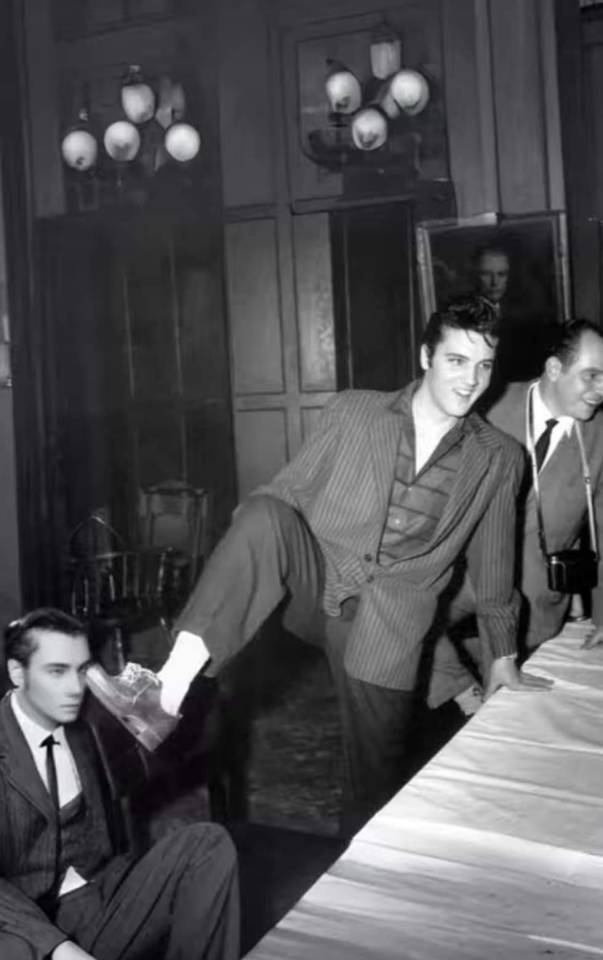
18 notes
·
View notes
Text
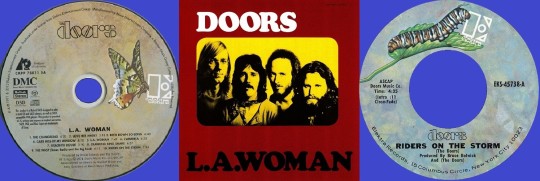
The Doors - Riders on the Storm (1971) (Album Version | 2012 New Stereo Mix) Jim Morrison / John Densmore / Ray Manzarek / Robby Krieger from: "L.A. Woman" (LP) "L.A. Woman" (CD | 40th Anniversary Mixes) "Riders on the Storm" / "The Changeling" (Single)
Jazz Rock | Proto-Goth
JukeHostUK (left click = play) (320kbps)
Personnel: Jim Morrison: Vocals / Whispers Ray Manzarek: Fender Rhodes Electric Piano Robby Krieger: Electric Guitar with Ttremolo John Densmore: Drums
Jerry Scheff: Bass
Produced by The Doors and Bruce Botnick
Recorded: @ The Doors' Workshop in West Hollywood, California USA December, 1970 – January, 1971
Album Released: on April 19, 1971
Single Released June, 1971
Elektra Records
13 notes
·
View notes
Video
youtube
Jerry Scheff Interview - EP 1 (Elvis Presley, Bob Dylan, His Book)
0 notes
Text
A Year Of Songs #54: “Hurry Down Doomsday (The Bugs Are Taking Over)” by Elvis Costello

Elvis Costello ranks as one of the great Apocalyptic Bards of our age - he’s been “Waiting For The End of the World” since his 1977 debut, My Aim Is True - but he’s rarely howled with such undisguised cataclysmic despair as this cursed rocker off 1991’s Mighty Like A Rose.
“Forget about Beethoven, Rembrandt and rock and roll
Forget about Mickey Mouse, Marlboro and Coca Cola
Forget about Cadillac, Mercedes and Toyota
Forget about Buddha, Allah, Jesus and Jehovah
Hurry down Doomsday, the bugs are taking over”
Co-written with studio drummer extraordinaire Jim Keltner, the music matches the manic bummer of the lyrics and Costello’s possessed vocal. Besides Keltner’s tin can tribal beat and Costello’s messy electric guitar, the pyre dance is fueled by Marc Ribot (guitar), Jerry Scheff (bass), Wrecking Crew keyboardist Larry Knetchel, and further keyboard fuckery from producer Mitchell Froom. From jump, it roars like a black hymn from a Gnostic cousin to the Book of Revelation.
“The man in the corner of this picture has a sinister purpose
In the teeming Temple of the Railroad Kings
He's planting a trashy paperback book for accidental purchase
Containing all the secrets of life and other useless things
But I can't bring myself to look
Wake up, zombie, write yourself another book
You want to scream and shout, my little flaxen lout
Hurry down Doomsday, the bugs are taking over”
The song careens as if it might rattle apart at any moment, each aspect shaking on a ragged edge, yet some how, some way holding together as the chittering hordes rumble in the distance.
youtube
#a year of songs#song of the day#ayearofsongs#elvis costello#hurry down doomsday#Bugs#apocalypse#mighty like a rose#1991#mitchell froom#Jim keltner#Marc ribot#Youtube
0 notes
Text
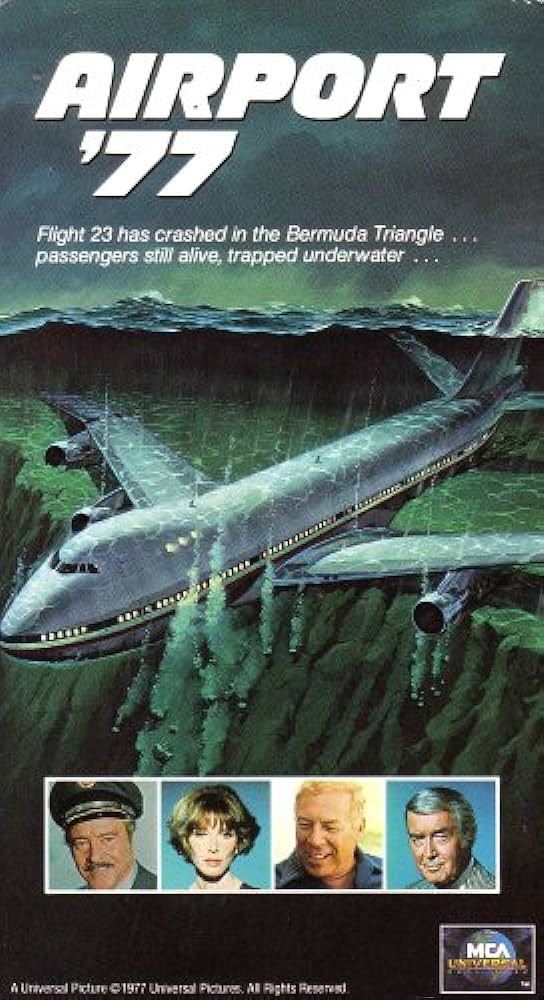
Airport ‘77 (1977)
PG - 1h 54min Genres: Action, Drama, Thriller
Art thieves hijack a 747, hit fog and crash into the ocean, trapping them and the passengers under one hundred feet of water.
Director: Jerry Jameson Writers: Arthur Hailey (novel), Michael Scheff (screenplay) Stars: Jack Lemmon, Lee Grant, Joseph Cotten
0 notes

